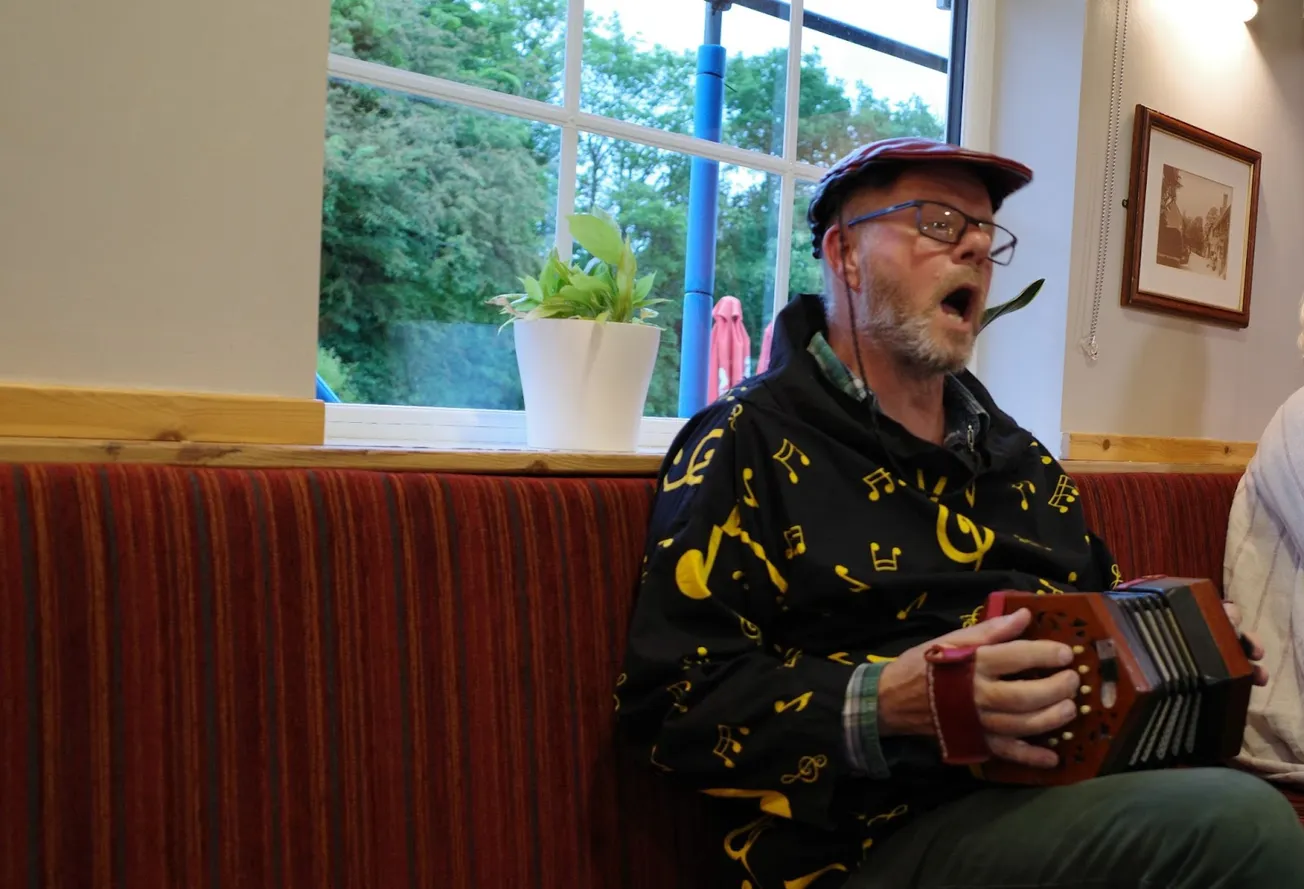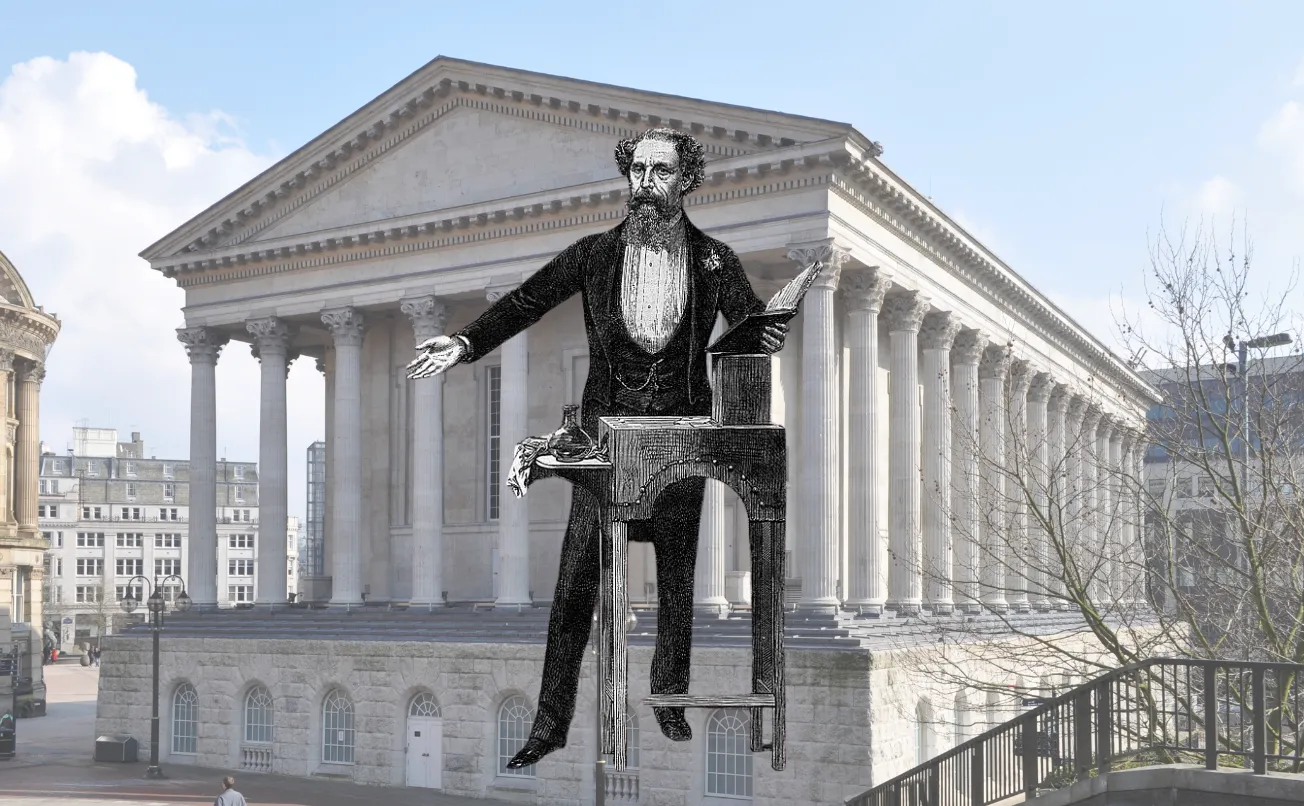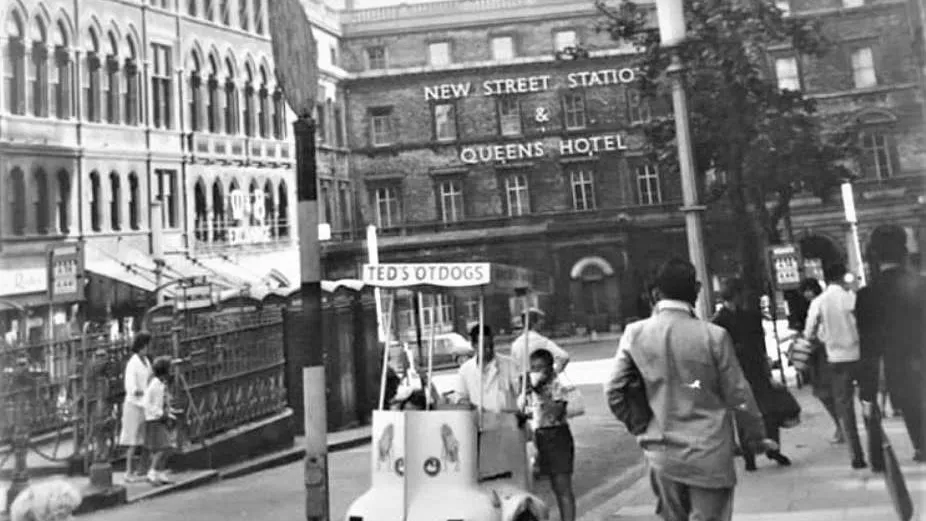Dear Patchers — Welcome to Tuesday’s Dispatch.
Today’s members-only story will take you to the Blue Bell Cider House in Solihull to discover a lesser-known part of Birmingham’s cultural history — the folk music that was once so popular, singers were forbidden from selling their songs on the streets. To read the story in full, you will have to become a Dispatch member. But don’t worry! It’s only £8 a month to have access to all of our writing, including our back catalogue. Hit the button to join today — we’d love to have you.
Before that, earlier this year, West Midlands Railway and its sister company London Northwestern reckoned it had issued 40,000 fines for ticketless travel — with the minimum fine a whopping £100. That’s a huge amount of money recovered.
While catching the same number of fare dodgers on the trams is unlikely, the West Midlands Combined Authority must be hoping to recover something towards that amount as they announce a new fare dodge fine hoping to incentivise more honest travel. We have all the details in today’s briefing.
Brum in Brief
💰Huge rise in fare dodge fines: Fines are set to jump from £10 to £100 for fare dodgers on the trams. A report to the West Midlands Combined Authority (WMCA) reccomended that fines rise by ten times current levels in order to encourage buying tickets before boarding. Increasing the fine level was first agreed in 2021 but implementation was deferred due to other factors such as Covid and the Commonwealth Games. The report states: “The original penalty fare of £10 would not be sufficient as to incentivise people to purchase in advance." All the details.
🏢Modernist Coventry: Coventry’s at-risk modernist architecture is being celebrated in a new exhibition. In a series of linocuts by Paul Catherall, landmarks up for redevelopment or under threat, including buildings such as the Bull Yard and railway station, are depicted with the artist noting that the works are a “tribute to what could be completely lost”. With Coventry city centre undergoing a £450 million redevelopment, Catherall noted how much change is ongoing in the area and why he wanted to capture these buildings. “[I wanted] to give them a bit of their original glamour". Full story with details on the exhibition.
🏉Rugby Academy launched: With local rugby clubs Worcester Warriors and Wasps collapsing, a new academy has launched to allow aspiring rugby players to “fulfill their potential”. The professional-run Coventry Rugby Regional Academy will have under-15, 16, 18 and 23 age groups and hopes to give those who want a career the chance to make it despite instability in the game. “We want rugby union to be a big part of the sporting scene in Coventry and Warwickshire and by ensuring talented players reach their full potential we will provide players to clubs at every level,” said Nick Johnston, CEO at Coventry Rugby. Full story.
🎨Last chance for art: The (absolutely brilliant says one Dispatch writer) exhibition at Coventry’s The Herbert, which depicts working class life, is on for only one more week. The exhibition, curated by Johny Pitts, emphasises the perspectives of practitioners who turn their gaze towards both their communities and outwards to the wider world. It’s also free. More info.
⚽Euro fever: For those wanting to watch Euro 2024 on a big screen with lots of atmosphere, there are many places to do so in Birmingham. With the action kicking off on Friday, Luna Springs claims to have the biggest fan zone while the Old Crown has set up what they’re calling the Digbeth Fan Park. The Forum in Dale End also has a big screen as does Bierkeller, the Shakespeare Inn and the Button Factory.
Work, love, death, p*** ups: rediscovering the Birmingham Ballads
By Ophira Gottlieb
The Blue Bell Cider House, as I find out too late, is not actually in Birmingham but in Solihull. I hail a taxi and ask the driver to take me to the pub, and am alarmed to find that a good half-hour later we’re still driving, and the landscape around us is all neatly clipped hedges and canals topped with fat white geese and slender houseboats. We arrive just as the sky is on the turn. Inside, in a stone-grey room, three men in flat caps immediately ask what I’m doing there. “I’m here for the folk night,” I say. One of the men launches into a deep baritone of a Welsh ballad. “Are you also here for the folk night?” I ask, once he’s finished. “No,” he snorts dismissively, “I didn’t know there was one.”
The West Midlands was once well-known for its knack for making industry out of everything. Birmingham was the Toyshop of the Nation, the Workshop of the World, The City of a Thousand Trades, and it churned out pins, coins, medals, jewellery, guns, steel pens and mother-of-pearl buttons. But England’s second city is considerably less famous for one of its more peculiar industries: songwriting. In the late 18th century, so many ballad singers roamed the streets or lurked on corners flogging their songs, that by 1794 they were outlawed for a time, alongside beggars and “other vagrants”, as it's put in the legislation. These hawkers would sing whichever song they were selling, and if any passersby happened to take a liking to it, they could purchase the lyrics for a penny or a half-penny, so that the song sheets (officially called broadsides) were often referred to as penny ballads.
Singer and folklorist Roy Palmer begins his introduction to his collection of Birmingham Broadsides by writing that “In 1800 there were no ballad printers in [Birmingham]; nor were there any in 1885.” However, as Palmer points out, between these years, around 40 ballad printers came and went, most of them bearing the surnames of their founders: Wood, Russell, Bloomer, and Pratt. These establishments were a far cry from their corner-lurking predecessors, and between them they produced, printed, and sold multiple millions of ballads across their glorious, 85-year reign.
Birmingham deserves great journalism. You can help make it happen.
You're halfway there, the rest of the story is behind this paywall. Join the Dispatch for full access to local news that matters, just £8/month.
SubscribeAlready have an account? Sign In







